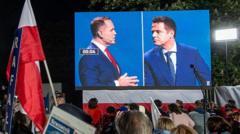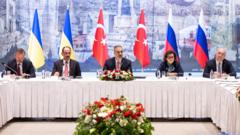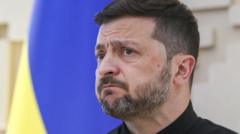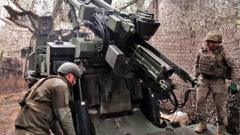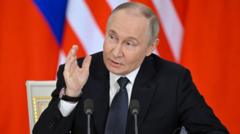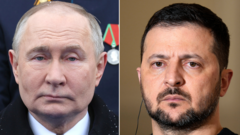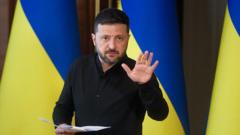Amid a politically charged atmosphere, George Simion emerged victorious in the first round of Romania's presidential election after promising to "Make Romania Great Again." His campaign draws parallels to U.S. populism, yet also aims to revive discussions on uniting with Moldova and parts of Ukraine, straining diplomatic relations.
George Simion's Nationalist Bid: A Look at Romania's Rising MAGA Candidate

George Simion's Nationalist Bid: A Look at Romania's Rising MAGA Candidate
George Simion, a nationalist leader, aims for the Romanian presidency with a focus on national unity and global populism. His ambitions stir concern among neighboring nations.
George Simion, leader of the Alliance for the Union of Romanians party, looks poised to make a significant impact in Romania’s presidential election, slated for Sunday. The self-proclaimed "MAGA candidate" has already gained traction by winning the first round of voting held on May 4, where he convincingly outperformed ten other candidates.
In a recent appearance on Steve Bannon's "War Room" podcast, Simion declared that Romanian voters had “totally bashed the globalists,” echoing sentiments similar to those of American politicians like Vice President JD Vance. Vance previously criticized Romania for halting a previous election that was expected to favor a far-right contender.
Simion, 38, has utilized this momentum to classify his campaign within a broader trans-Atlantic movement against global elites. Nevertheless, his political narrative is deeply influenced by a more domestically centered agenda. He has spent considerable time rallying support around the contentious idea of uniting Romania with its predominantly Romanian-speaking neighbor, Moldova, and sections of Ukraine that are home to ethnic Romanians.
While Simion has moderated this unionist rhetoric in recent weeks to align more closely with nationalistic sentiments, the proposal sits firmly at odds with the views of Romania's neighbors and has raised concerns regarding regional tensions.
Romania's presidency, although primarily ceremonial, does maintain influence over foreign affairs, making Simion’s potential ascent a focal point for international observers. With his brand of nationalism gaining momentum, the implications of his presidency could significantly reshape Romania's position on the world stage.


